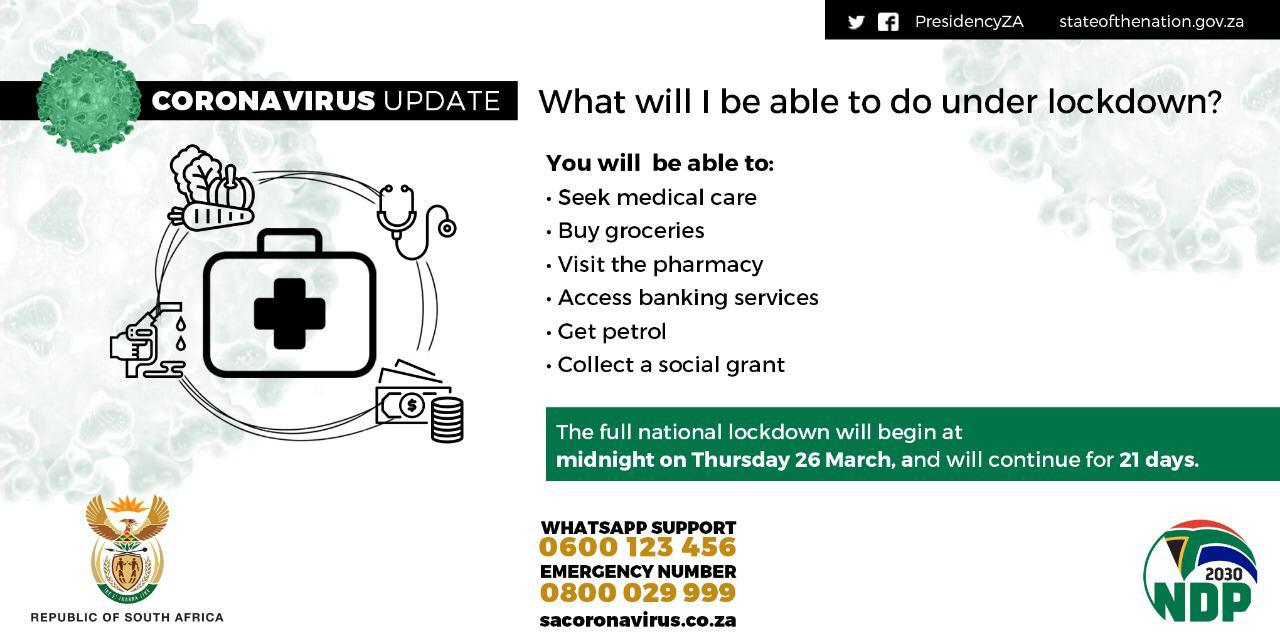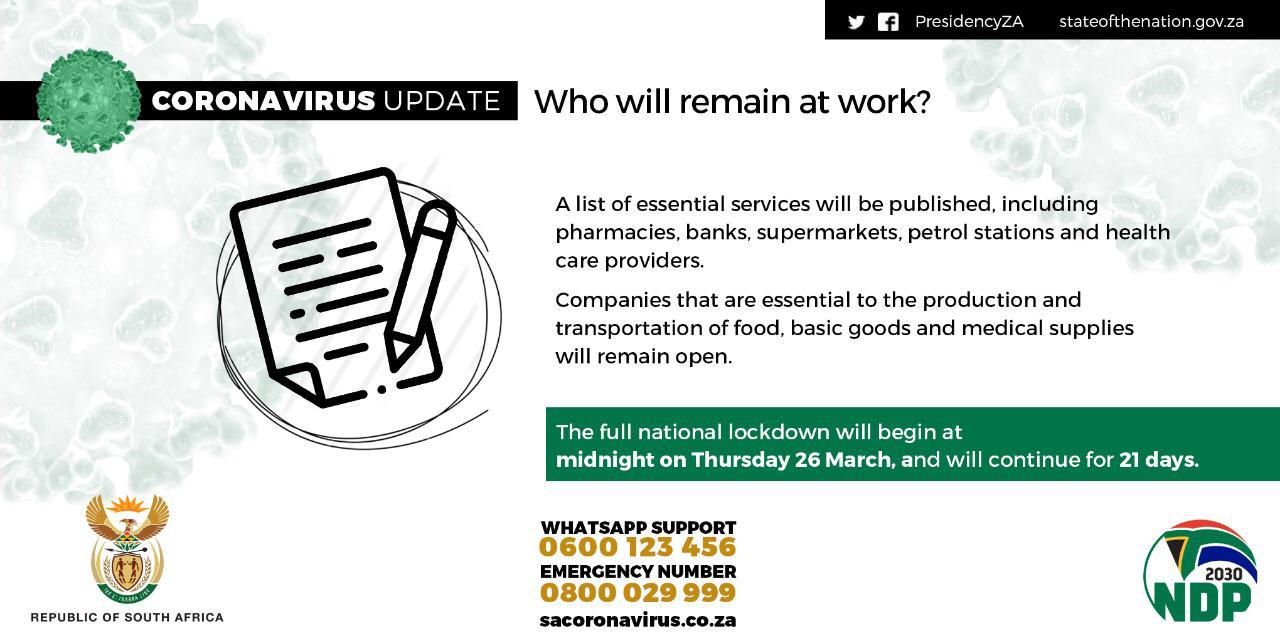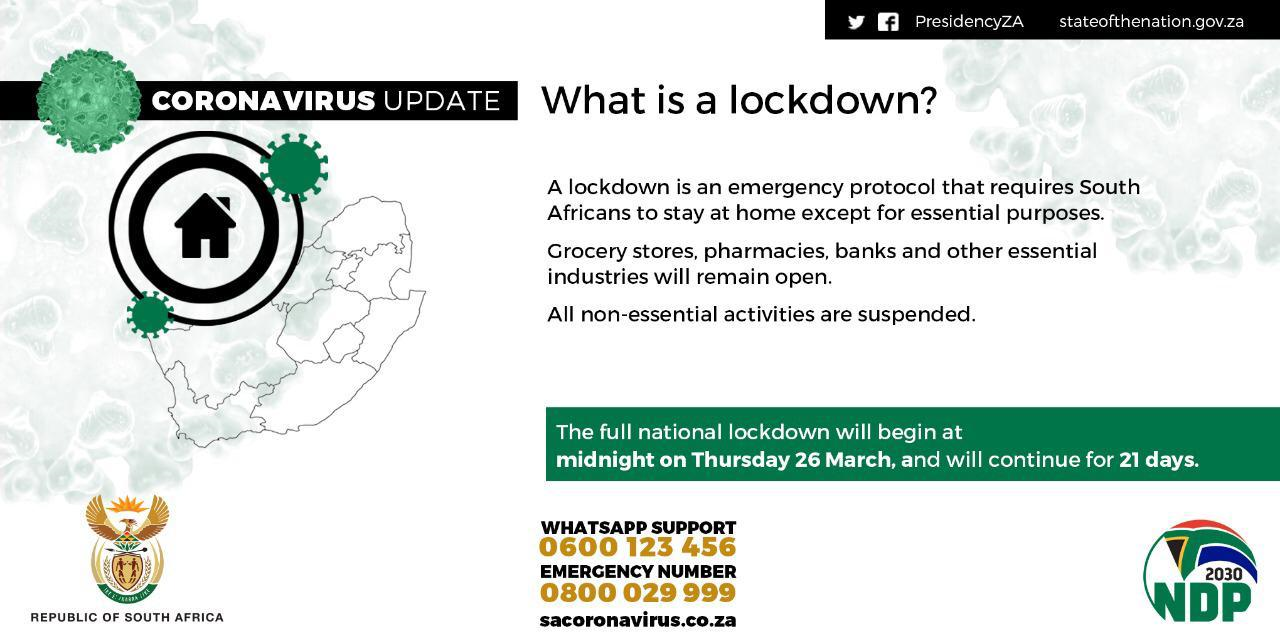South Africa has taken a crucial step in the fight against the novel coronavirus by implementing a shutdown to disrupt the rapid Covid-19 infection rate in the country, which has increased from 61 to 402 cases in just eight days.
The lockdown will come into effect from midnight on Thursday 26 March until midnight on Thursday 16 April, President Cyril Ramaphosa announced on Monday.
Here are 13 key points from his briefing:
1. You will not be allowed to leave your home except under strict circumstances, such as to seek medical care, buy food, medicine and other supplies or collect a social grant
2. All shops and businesses will be closed, except for supermarkets, pharmacies, laboratories, banks, essential financial and payment services, including the JSE, petrol stations and health care providers
3. Companies that are essential to the production and transportation of food, basic goods and medical supplies will remain open.

4. The South African National Defence Force will be deployed to support the South African Police Service to ensure the lockdown is implemented
5. There will be a significant increase in screening, testing, contact tracing and medical management
6. Emergency water supplies will be provided to informal settlements and rural areas
7. South African citizens and residents arriving from high-risk countries will automatically be placed under quarantine for 14 days
8. Non-South Africans arriving on flights from high-risk countries we prohibited a week ago will be turned back
9. International flights to Lanseria Airport will be temporarily suspended
10. International travellers who arrived in South Africa after 9 March 2020 from high-risk countries will be confined to their hotels until they have completed a 14-day period of quarantine
11. Any employee who falls ill through exposure at their workplace will be paid through the Compensation Fund
12. A tax subsidy of up to R500 per month will kick in for the next four months for private sector employees earning below R6 500
13. Anyone breaking the rules could be punished with imprisonment for up to one month or with a fine.





